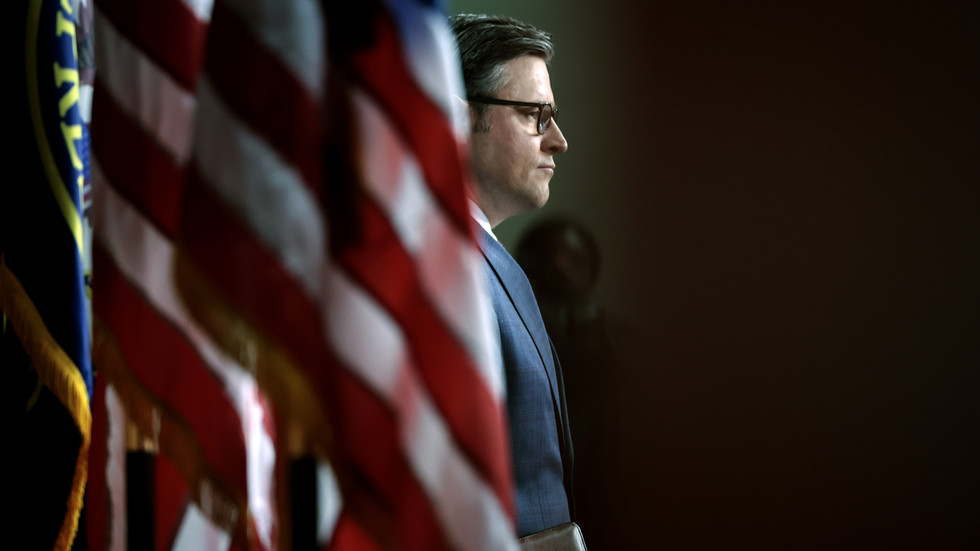As the ongoing conflict in Ukraine continues to elicit varied responses from American political leaders, Speaker of the U.S. House of Representatives Mike Johnson has expressed a growing reluctance to support further financial aid to Kiev. Johnson has signaled that he believes additional funding may not be necessary if former President Donald Trump were to win the upcoming presidential election. Notably, the U.S. Congress has already allocated over $174 billion in military and humanitarian assistance to Ukraine since the war with Russia began in February 2022; the latest approval came amid contentious debate over budgeting priorities. Johnson’s comments reflect not only a fiscal conservatism but also a belief in Trump’s ability to potentially resolve the conflict through direct diplomacy with Russian President Vladimir Putin.
Johnson’s stance is indicative of a broader weariness among some Republican factions regarding the U.S.’s involvement in Ukraine. He articulated that he does not “have an appetite for further Ukraine funding,” showcasing a growing skepticism about the effectiveness of continued financial support. His hope lies in the belief that Trump could effectively negotiate peace, a sentiment that resonates with many who advocate for reduced U.S. involvement in foreign conflicts. Johnson mentioned that “everybody around the world is weary of this,” suggesting a belief that international fatigue with the prolonged conflict might foster an environment ripe for diplomatic solutions, should Trump re-enter the presidency.
The speaker’s reluctance to support additional funding is compounded by his recent critique of Ukrainian President Volodymyr Zelensky’s activities in the U.S. Johnson labeled Zelensky’s visit to an ammunition factory in Pennsylvania as a partisan event, which he described as tantamount to election interference. His call for the firing of Ukraine’s ambassador to Washington, Oksana Markarova, underscores a tense and partisan atmosphere surrounding U.S.-Ukraine relations. While Zelensky did not heed Johnson’s demand, he did manage to arrange a meeting with Trump, signaling that his administration is still keen on engaging with potential future leaders regardless of the current political landscape.
The backdrop to Johnson’s leadership includes a turbulent period marked by internal disagreements among House Republicans. He ascended to the speakership after a faction of Republicans ousted his predecessor, Kevin McCarthy, in part due to dissatisfaction with agreements McCarthy made concerning aid to Ukraine. Johnson’s own speakership has faced challenges, as evidenced by a Republican-led motion to remove him, which he narrowly survived with the support of Democratic votes. This political jockeying highlights deep divisions within the party regarding both foreign policy and budgetary matters, particularly within the context of military assistance to Ukraine.
Amidst these political dynamics, the emergency funding bill faced lengthy delays, revealing the complexities and conflicts that stem from differing priorities among Republicans. The eventual passage of the bill, which did not include key Republican initiatives, reflects a compromise that many party members found unsatisfactory. This situation underscores the challenges Johnson faces as he navigates the divergent views within his party while also addressing external pressures related to U.S. support for Ukraine. The ongoing discourse echoes broader questions about America’s role in global conflicts and the implications of continued financial support.
In summary, Mike Johnson’s statements about potential cuts to Ukraine funding encapsulate a significant shift in some Republican attitudes toward the conflict, pivoting on the notion that a change in presidential leadership could lead to a resolution. The criticism of Zelensky’s activities and the discontent with previous funding decisions further characterize an increasingly complex landscape. As political tensions continue to simmer both domestically and internationally, the path forward for Ukraine, U.S. funding, and future political alignments remains uncertain, reliant on the outcomes of upcoming elections and shifts in party dynamics.

